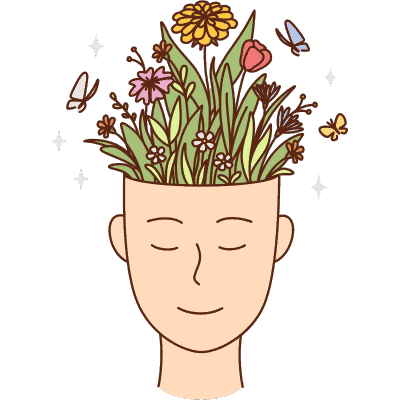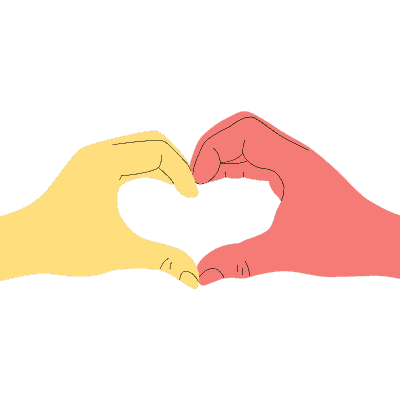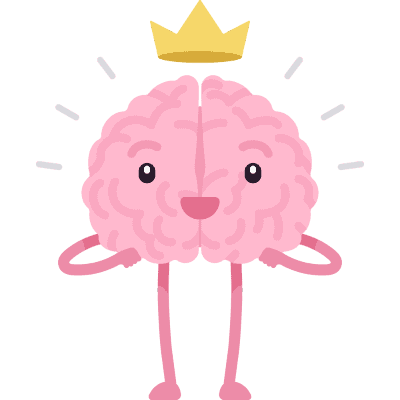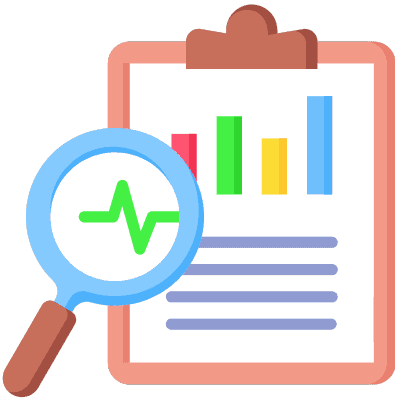Have you ever walked into a room and felt the vibe of someone’s mood, good or bad? You know what we mean—it could be a silent tension or a happy energy that is in the air. You can’t hear it, but you can feel it. That’s the power of emotions–although they can be unseen or subtle, sometimes intangible, they are felt by those around them.
What if we told you that the secret, or not-so-secret, as it seems kinda obvious, to a happy, healthy romantic relationship isn’t just about recognizing those emotions but responding to them with empathy and understanding? Welcome to the world of Emotional Intelligence, aka EI.

Emotional What Now?
Emotional Intelligence is the ability to see, understand, and control our emotions, as well as to recognize, understand, and respond to the emotions of others.
You can think of it as a kind of toolkit or a conduit between simply spotting and acknowledging emotions and meaningful emotional connection, especially in intimate relationships.

Why Should I Care About Emotional Intelligence in My Relationship?
Let’s say someone puts you in a complicated maze and tells you to find your way out—only they blindfold you. That’s how relationships can feel when we can’t, or won’t, understand or properly respond to our partner’s needs. Emotional intelligence provides a GPS route with the most efficient way to get where you want to go with the least amount of traffic or roadblocks.
- Avoids Misunderstandings: EI helps in being able to define the emotions behind the words. Maybe that short “I’m fine” means the exact opposite.
- Deepens Connection: When we react with understanding and empathy to our partner’s feelings, we build trust and further intimacy.
- Facilitates Conflict Resolution: Arguments and conflicts can be defused when both people feel they are being both heard and validated.
Building Your Emotional Intelligence Toolkit
If this all sounds like a battlefield filled with emotional landmines, don’t panic! Although no two people react to things the same way, there is guidance mixed with a little common sense that can help you avoid stepping on one and hearing that dreaded “click.”

Emotional Intelligence isn’t set in stone—just like a muscle; it can be developed and strengthened if you work at it. Here’s how:
- Self-awareness: Before understanding others, you need to be able to recognize and define your feelings. Are you angry, or are you frustrated? This distinction seems small, but it matters.
- Empathy: Put yourself in your partner’s place—think about their day and any challenges they may have faced. By doing so, you put yourself in their shoes.
- Active Listening: It’s not about waiting for your turn to speak; it’s about really hearing and comprehending your partner’s words and the emotions behind the words.
- Regulation: Learning to manage those sometimes BIG waves of emotions is paramount—reacting impulsively can often lead to regret. Take a breath before you lash out.
How to React To Your Partner’s Needs

In the complicated space of relationships, it’s not about anticipating every move but tuning in to the frequency of your partner’s emotions and rolling with them. Although there is no “right” way to do this, there are some great how-to guidelines:
- Ask Open-ended Questions: Instead of asking, “Did you have a good day?” you should try “How was your day?” This gives your partner a chance to elaborate and share more with you.
- Non-verbal Cues: Sometimes, it’s the dramatic sigh, the shoulder shrug, or a smile that reaches their eyes that can convey how they are feeling.
- Validate, Don’t Invalidate: Do not say things like “You shouldn’t feel that way”—it will immediately shut down communication or cause an argument. Instead, tell them, “I can see why you’d feel that way.”
- Ask for Clarification: Not sure about what they’re feeling? It’s always okay to ask! There are (almost) no dumb questions. And a simple “Can you tell me more about that?” continues the dialogue and will help get to the heart of the matter.

Emotional Intelligence in Action
Let’s paint a picture. Your partner comes home from work looking wiped. Instead of launching into how your day was, say, “You seem a little bit off; anything happen today that you want to talk about?” They may not feel like sharing, but just asking can do wonders. But chances are pretty good they’ll want to vent about whatever is on their mind.
And when they do share, Instead of offering possible solutions or attempting to “fix” the problem, you listen, empathize, and then ask if they want advice or just a listening ear. This simple interaction will go a long way in a relationship.
Emotional Intelligence Research
There are some influential studies and findings relating to emotional intelligence and its impact on various areas of life, including romantic relationships:

- The Birth of EI – Salovey & Mayer (1990): Imagine two professors, Peter Salovey, and John D. Mayer, sitting in a cozy, book-lined office, pondering emotions. They were the first to say, “Hey, some people are really good at this emotion thing.” They coined the term “Emotional Intelligence” and described it as knowing one’s feelings, understanding emotions, and using emotions in productive ways. Think of it as the difference between someone who can sense a friend’s subtle mood shift at a party and someone who remains blissfully unaware.
- EI Goes Mainstream – Goleman’s Take (1995): Daniel Goleman, with his killer knack for making complex topics digestible, brought EI into the spotlight with his book. He argued that EI might matter even more than IQ. Imagine two kids in school: one’s a math whiz (high IQ) but can’t handle criticism, while the other is average academically but aces group projects and handles stress like a champ. That’s EI in action.
- Love and EI – Brackett, Warner, & Bosco 2005 delved into our love lives. They found couples high on EI tend to be, well, happier. Imagine a couple where both partners can sense when the other needs space or support. That’s fewer arguments about “you never listen to me!”
- Personality and Individual Differences – Now, imagine Dan in accounting, always calm during tax season, or Angela in marketing, who can rally the troops during tough projects. Lopes, Salovey, and Straus, in 2003, found that folks like Dan and Angela, with high EI, do better at work. They get along with colleagues and handle stress without losing their cool.
- EI: The Mental Health Shield – Martins, Ramalho, & Morin 2010 made an interesting discovery. Individuals with high EI are a bit like emotional warriors, dodging feelings of depression and anxiety. It’s like having an emotional fur coat during life’s blizzards.
- How Efficient Are Emotional Intelligence Trainings: A Meta-Analysis – Think EI is just something you’re born with? Wrong! Hodzic, Scharfen, Ripoll, Holling, & Zenasni 2018 showed that you can boost your EI with the right training. It’s like an intense gym sesh, but for your emotions.
- Learning and Individual Differences – Remember that kid who seemed average academically but always nailed group projects? Qualter, Gardner, Pope, Hutchinson, & Whiteley, in 2012, found that students with higher EI often do better in school. It’s not just about hitting the books; it’s also about handling stress, collaborating, and understanding others.
- Measuring EI – Not Just a Feeling: Want to know how emotionally intelligent you are? Tools like Bar-On’s EQ-i or the Mayer-Salovey-Caruso test can give you a score. It’s like taking a personality test but focused on feelings.
Takeaways
So, there you have it! The world of emotional intelligence can be tricky, but it’s doable! Whether you want to be the “it” couple or just want to dodge a few of life’s emotional curveballs if you can, understanding emotional intelligence is a powerful tool to have in your sed. And the best part? It’s a skill you can work on, just like learning to ride a bike or play the piano. Just tune in and make sure you’re on the right channel or frequency.
Building and honing your emotional intelligence is in no way, shape, or form an easy, snap-you-fingers endeavor. It’s not a sprint; it’s a marathon of self-awareness, understanding, and growth. But remember, each step you take leads to a closer connection with your partner—it’s worth the walk.
In the jigsaw puzzle of a relationship, each emotion and each interaction is an important piece. Emotional intelligence is understanding each piece, knowing where it fits, not trying to jam in a piece that looks like it should fit, and appreciating the picture it creates when you find that corner piece you’ve been searching for and finally find that someone ended up under the table.
